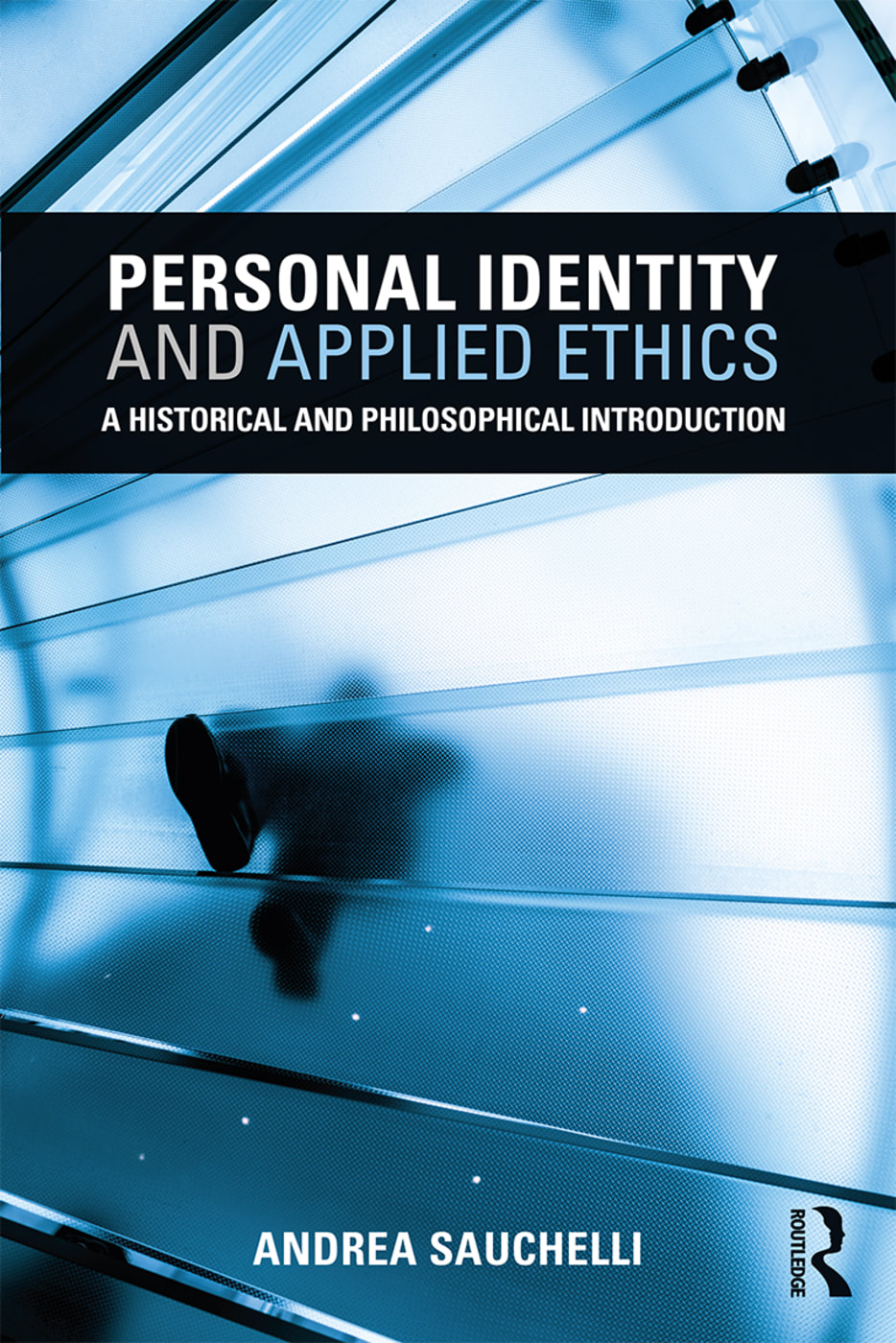Personal Identity and applied ethics'Soul', 'self', ‘substance’ and 'person' are just four of the terms often used to refer to the human individual. Cutting across metaphysics, ethics, and religion the nature of personal identity is a fundamental and long-standing puzzle in philosophy.
Personal Identity and Applied Ethics introduces and examines different conceptions of the self, our nature, and personal identity and considers the implications of these for applied ethics. A key feature of the book is that it discusses a range of different approaches to personal identity; philosophical, religious and cross-cultural, including perspectives from non-Western traditions. Within this comparative framework, Andrea Sauchelli examines the following topics:
Chapter summaries, a glossary of key terms, and suggestions for further reading make this a refreshing, approachable introduction to personal identity and applied ethics. It is an ideal text for courses on personal identity that consider both western and non-western approaches and that apply theories of personal identity to ethical problems. It will also be of interest to those in related subjects such as religious studies and history of ideas. For a review of the book, click here. |
Some errata/clarifications:
P. 114: Parfit has 'outlined' an influential psychological theory (or, better, various versions of the psychological approach). (Although Parfit says (2012: 6-7) that he "defended" a brain-based psychological theory.) P. 115: "In his Reasons and Persons, Parfit suggests that we do not have to choose among these different versions of the psychological theory and that some cases may even be indeterminate as to whether personal identity holds" should be "In his Reasons and Persons, Parfit suggests that we do not have to choose among different theories of personal identity so long as we are reductionists (more on this later) and claim that some cases may be indeterminate as to whether personal identity holds." Parfit in Reasons and Persons (1987 edition), Part III is more interested in criticising non-reductionism, in any of its forms, than other forms of reductionism. P. 139: Where I discuss McMahan's and Parfit's versions of the Embodied Part view, I should have said that Parfit proposes the Embodied Person view. "More specifically, on what Parfit calls the best version of the embodied part view, the embodied person view, 'human animals think by having a conscious thinking part, which is a person in the Lockean sense' (Parfit 2012: 17)." Also, I could have said that Parfit does not claim that, when he proposes the embodied person view, he has thereby rejected his version of the constitution view (constitutive reductionism), which is very similar to Shoemaker's (see especially Parfit 1999 and 2007). P. 151: “according to Frankfurt, having volitions is a necessary and sufficient condition for being a person” should be: "according to Frankfurt, having volitions is a necessary condition for being a person." |
Teaching Material on Personal Identity
I have here included a syllabus that can be used to teach a course on personal identity (intermediate, upper-level undergraduate) based on my book.
Brief introduction:
This course investigates classic and contemporary theories of personal identity and their consequences for some selected debates in applied ethics. The first part of the course gives a foundational knowledge of classic and contemporary theories of personal identity and the self. The second part of the course is focused on various controversial topics, such as the morality of abortion, self-concern, the definition of death, and the legitimacy of certain human enhancements (in particular those enhancements aimed at extending human life beyond its perceived ‘natural’ limits).
The course aims to:
Brief introduction:
This course investigates classic and contemporary theories of personal identity and their consequences for some selected debates in applied ethics. The first part of the course gives a foundational knowledge of classic and contemporary theories of personal identity and the self. The second part of the course is focused on various controversial topics, such as the morality of abortion, self-concern, the definition of death, and the legitimacy of certain human enhancements (in particular those enhancements aimed at extending human life beyond its perceived ‘natural’ limits).
The course aims to:
- Introduce the students to classic theories of personal identity and the self from different philosophical traditions;
- Present contemporary theories of personal identity and relate them to their predecessors;
- Enable students to draw a connection between classic and contemporary theories of personal identity with issues in applied ethics;
- Provide students with theoretical tools to develop their own views on the philosophical issues debated.
ScheduleWeek 1 & 2
General Concepts: Identity and Individuation, The Simple-Soul Approach, Dualism(s) and Criticisms. Required Readings
Week 3 Buddhist no-self Theories and Nihilism Required Readings
Suggested Readings
Week 4 Relational approach and Confucian role-person Required Readings
Week 5 & 6 The Psychological Approach Required Readings
Suggested Readings
Week 7 The Physical Approach Required Readings
Suggested Readings
Week 8 The Practical Approach Required Readings
Suggester Readings
Week 9 The Narrative Approach Required Readings
Suggested Readings
Week 10 What Matters in Survival Required Readings
Suggested Readings
Week 11 Life-extending technologies (Mental Uploading, Cryonics) Required Readings
Watch: Black Mirror S3 E4 'San Junipero' Week 12 Abortion Required Readings
Suggested Readings
Week 13 Death Required Readings
Suggested Readings
Other suggested readings can be found in my book. |
Further resources on personal identity, self, memorySome movies on memory, identity, personhood:
TV Series:
Gentle introductions to Plato: On metaphysics:
Podcasts:
Paintings:
Poems:
Short stories and novels:
Comics Cartoons
|




